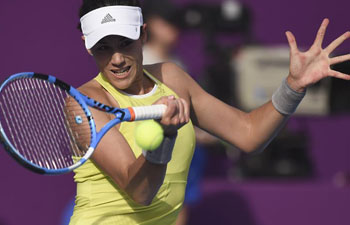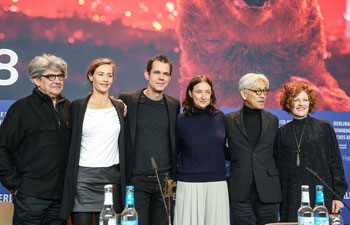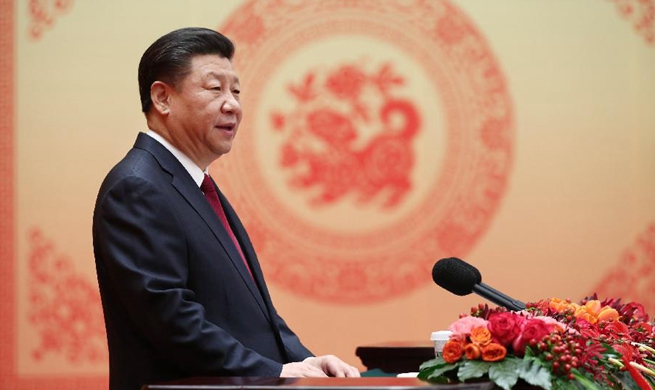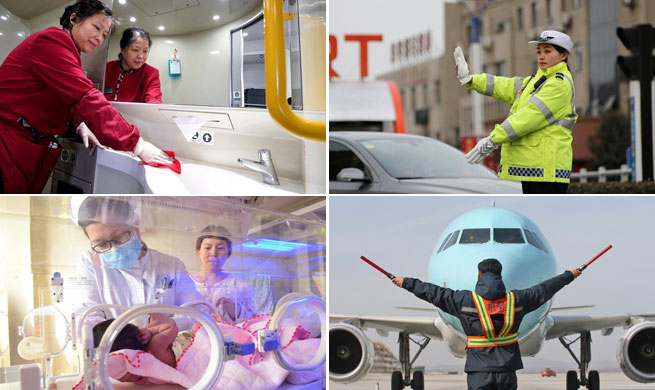by Xinhua writers Zhu Sheng, Qiao Jihong
MUNICH, Feb. 15 (Xinhua) -- The 54th edition of the Munich Security Conference (MSC) is to kick off on Friday in southern German city of Munich, focusing on the future role of the European Union (EU) as a global actor and its relations with Russia as well as the United States.
According to the MSC organizer, the growing threat to the so-called liberal international order, the numerous conflicts in the Middle East and political developments in the Sahel region will also be discussed in the coming days.
Moreover, arms control issues will be a point of emphasis, the organizer said.
The latest MSC Report 2018, titled "To the Brink - and Back?", described that the year 2017 was marked by signs of a continued erosion of the liberal international order and an increasingly unpredictable U.S. foreign policy.
"Tensions in many parts of the world have been growing, and major arms control treaties are at stake," the report read.
"In the last year, the world came closer -- much too close -- to the brink of a significant conflict. With our Munich Security Report 2018, we are asking if the international community is moving away from that brink again," said MSC chairman Wolfgang Ischinger.
"It (the potential of conflicts) has not been that bad for a long time," Ischinger emphasized.
HIGH-RANKING ATTENDEES
Hundreds of international decision-makers are expected in Munich from Feb. 16 to 18, including UN Secretary-General Antonio Guterres, U.S. Defense Secretary James Mattis, National Security Adviser H.R. McMaster, Russian Foreign Minister Sergey Lavrov, British Prime Minister Theresa May and NATO Secretary General Jens Stoltenberg.
Due to the ongoing coalition negotiations in Berlin, an interim German government delegation will attend the security conference for the first time.
According to the organizer, Germany will be represented by Foreign Minister Sigmar Gabriel, Defense Minister Ursula von der Leyen, Minister of the Interior Thomas de Maiziere. More than 30 members of the Bundestag from all political groups are also expected in Munich.
Analysts said that the potential coalition government should provide an answer to Germany's EU foreign policy.
Without a clear German commitment on this matter, Europe could "put aside its ambition to be a global actor", Franziska Brantner, member of the Green party said.
Michael Roth, Minister of State for Europe at the German Federal Foreign Office, also made it clear recently that it was high time for Germany to support French initiatives to give Europe a stronger voice and a joint strategy. He also stressed the necessity of Germany setting a good example in the EU and at the same time of strengthening transatlantic relations.

















